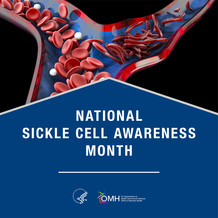September is ”Healthy Aging” month – follow these tips to stay at your peak!
1. Get moving
Exercise regularly to maintain a healthy body and brain.
2. Stay social
Take a class, volunteer, play games, see old friends, and make new ones.
3. Bulk up
Eat beans and other high-fiber foods for digestive and heart health.
4. Add some spice
Add herbs and spices to your meals if medications dull your taste buds.
5. Stay balanced
Practice yoga or tai chi to improve agility and prevent falls.
6. Take a hike
Brisk daily walks this September can bolster both your heart and lungs.
7. Sleep well
Talk to a sleep specialist if you don’t sleep soundly through the night.
8. Beat the blues
If you’ve been down for a while, see a doctor. Depression isn’t a sign of weakness. It can be treated.
9. Don’t forget
To aid your memory, make lists, follow routines, slow down, and organize.
10. Be positive in your conversations and your actions every day.
When you catch yourself complaining, check yourself and change the conversation to something positive!
Tips from Gary W. Small, MD, professor of psychiatry and biobehavioral sciences, David Geffen School of Medicine at UCLA, and director, UCLA Longevity Center
September is National Sickle Cell Awareness Month
 born with it. People with sickle cell disease have some red blood cells that are shaped like a “sickle” or crescent, instead of round. Sickle-shaped red blood cells can stick to each other inside blood vessels, blocking blood flow and oxygen and causing pain crises, problems with pregnancy, organ damage, and other serious health problems. Sickle cell disease, sometimes called sickle cell anemia, affects more people in the United States who are black or African American than other racial or ethnic groups.
born with it. People with sickle cell disease have some red blood cells that are shaped like a “sickle” or crescent, instead of round. Sickle-shaped red blood cells can stick to each other inside blood vessels, blocking blood flow and oxygen and causing pain crises, problems with pregnancy, organ damage, and other serious health problems. Sickle cell disease, sometimes called sickle cell anemia, affects more people in the United States who are black or African American than other racial or ethnic groups.- Centers for Disease Control and Prevention, HHS 1-800-232-4636 at www.cdc.gov/ncbddd/sicklecell/index.html
- National Heart, Lung, and Blood Institute, NIH, HHS 301-592-8573 at www.nhlbi.nih.gov/health-topics/sickle-cell-disease
- Sickle Cell Disease Association of America, 1-800-421-8453 at www.sicklecelldisease.org


